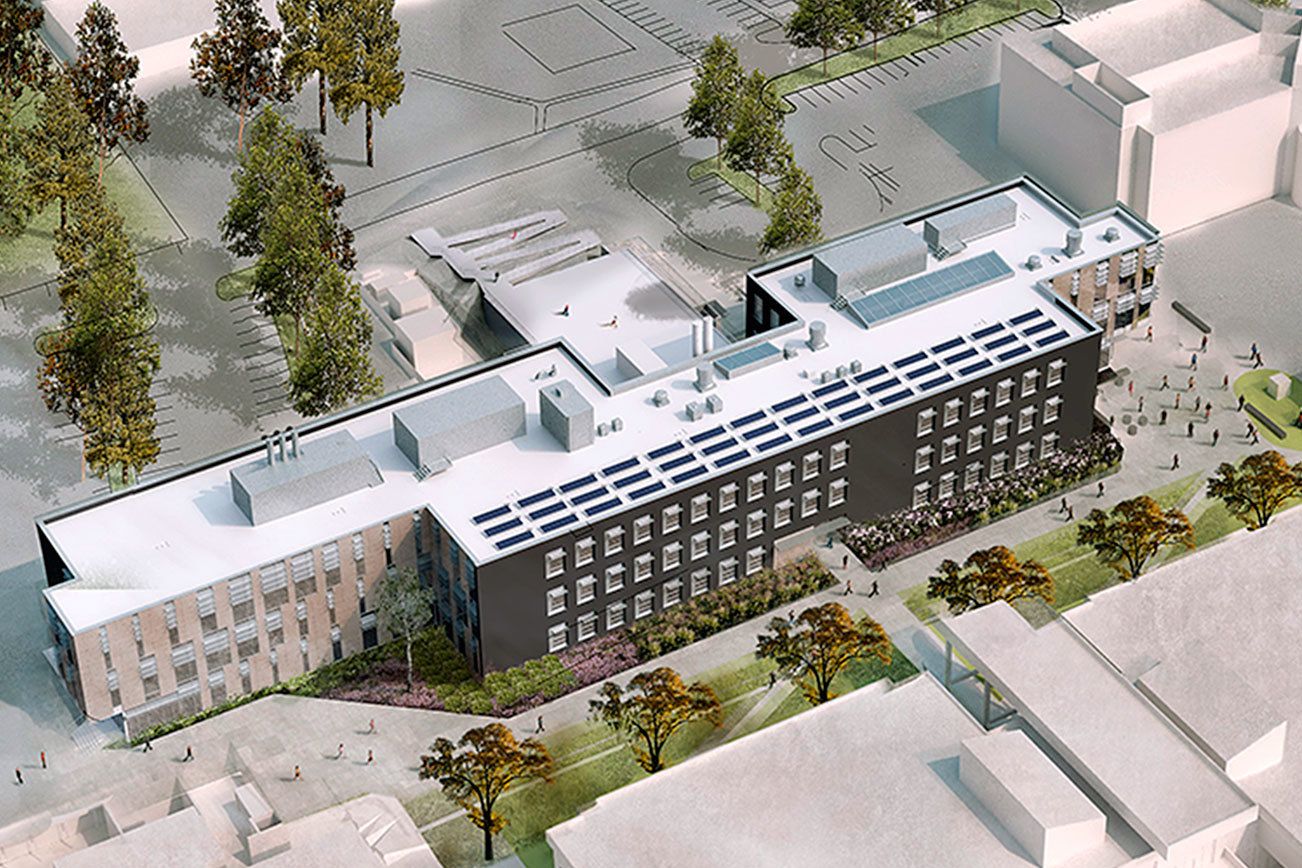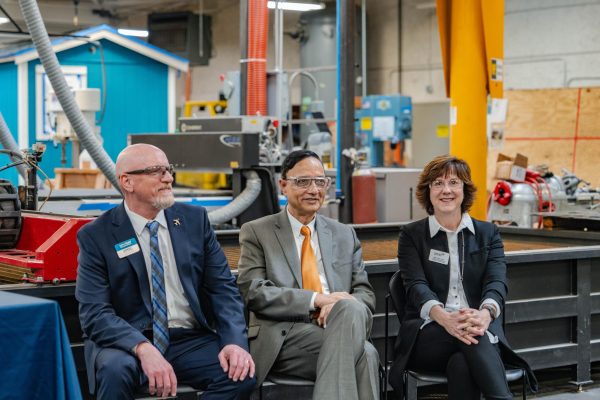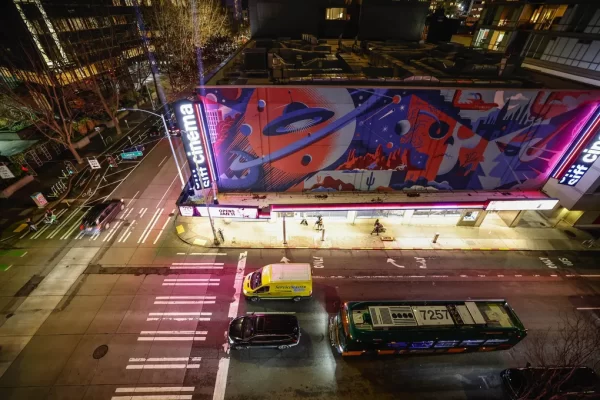Stalled capital budget delays EdCC, State Construction
A render of the proposed EdCC SET (Science, Engineering, Technology) building
Washington legislators failed to pass the state’s capital budget this July over a dispute over water rights, halting major construction and infrastructure projects including EdCC’s long-awaited SET (Science, Engineering, Technology) building.
The $4.2 billion dollar capital budget funds the construction and repair of public buildings, provides loans to nonprofit organizations to support culture and infrastructure, and influences the consideration of bills in relation to public works, buildings and land.
“The construction budget would build $1 billion in new public schools and create tens of thousands of jobs from Aberdeen to Spokane,” said Rep. Steve Tharinger (D-Sequim), chair of the House Capital Budget Committee. “Those projects and jobs are especially important to families in timber and farm country, which doesn’t have the infrastructure and white-hot economy of the Seattle-Everett-Tacoma core. This budget builds that infrastructure—schools and colleges, dental clinics and mental health facilities, early learning and local water projects—so that every community in the great state of Washington has a chance to thrive.”
The halt in approval jeopardizes roughly 1,400 statewide construction projects, according to Governor Jay Inslee’s July 10 press release. The legislature would aim to improve clean water for Washington State communities, aid state and community mental health care facilities, create affordable housing in reaction to the housing crisis and support roughly 19,000 jobs.
However, despite a nearly unanimous House vote of 92-1 in favor of the budget, Senate Republicans refused to vote due to a disagreement on the Washington State Supreme Court ruling known as the Hirst decision.
The 2016 water-rights ruling put greater regulations on water use, determining that county planning agencies are now required to make independent reviews deciding whether a new home has adequate and available water before issuing building permits. Specifically, a property owner must prove they have legal ownership over a proper supply of water, without infringing on a protected river or stream.
Support of the Hirst decision primarily came from environmental groups, who believed that the lack of restrictions on wells endangered local fish and wildlife, as was the case with the Whatcom County Nooksack River incident, which prompted the Supreme Court ruling.
In opposition, the state’s building industry has criticized the removal of authority from rural landowners, slowing or halting land development and minimizing landowner discretion.
“All 39 counties need water from exempt wells. And that is as critical as any infrastructure in a capital budget,” said Senate Majority Leader Mark Schoesler.
Senate Republicans have been heavily criticized for prolonging the final vote for months over the Hirst dispute.
“I understand the importance of addressing the water issue,” said Democrat and House Majority Leader Pat Sullivan. “Even though it affects a relatively small number of property owners, lawmakers should adopt a long-term fix. But that shouldn’t come at the expense of critical school investments for 1.1 million kids and tens of thousands of construction jobs all across the state.”
Locally, the EdCC community has been further delayed in the construction of the proposed $35 million SET building, the plans for which have been in slow progression for the last five years. The 70,000-square-foot design would be the first building constructed on campus in a decade, as a response to an influx of STEM (Science, Technology, Engineering and Mathematics) students enrolling at EdCC.
“I am very disappointed in our state legislators’ inability to pass a Capital Budget for our 2017-2019 biennium,” EdCC President Jean Hernandez stated in a faculty email. An outspoken advocate for the SET building, Hernandez noted that “for every month they delay, the cost of construction will increase for our SET building.”
Hernandez offered the possibility that Governor Jay Inslee may call a special session in the fall to make the Senate find a way to pass the Capital Budget and water rights bill.
“However, most individuals I’ve talked with at the WACTC [Washington Association of Community and Technical Colleges] Retreat this week feel it will probably be during the Supplemental Budget session (winter quarter 2018) when we will see movement,” Hernandez concluded.











